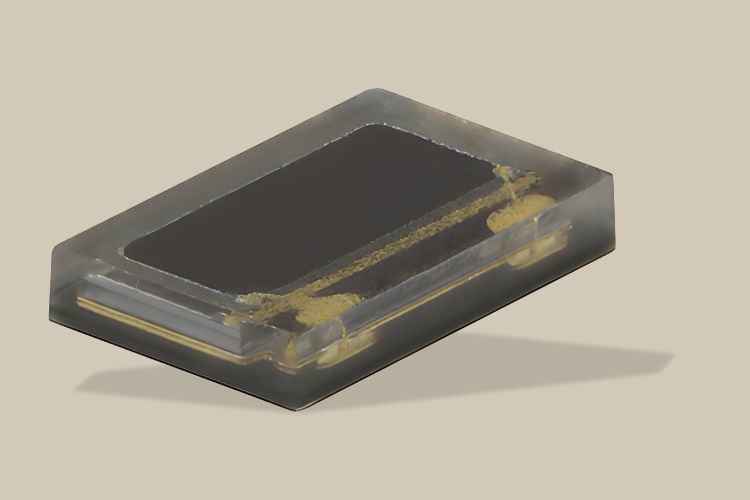VEMD8083: Vishay’s New Silicon PIN Photodiode for Biomedical Applications

Vishay Intertechnology, Inc. has introduced the VEMD8083, a silicon PIN photodiode for biomedical applications. It offers high speed and sensitivity, which are vital for techniques like photoplethysmography (PPG) that make use of light to detect changes in blood volume.
This new release measures just 3.2 mm by 2.0 mm and comes in a top-view, surface-mount package with a 0.6 mm profile. The small form factor comes from a reduction in chip size, while the package itself allows for a reverse light current of 11 μA at 525 nm, 14 μA at 660 nm, and 16 μA at 940 nm, designed to support a wide radiant sensitive area of 2.8 mm². The photodiode is compatible with competing products and can cover a wide spectral range from 350 nm to 1100 nm. With rise/fall times of 30 ns and a capacitance of 50 pF, it is suitable for devices that need fast measurements.
The VEMD8083 operates safely between -40 °C and +85 °C and can detect light within a ±60° field of view. It is RoHS-compliant, halogen-free, and is rated MSL 3 as defined by J-STD-020, meaning it can stay exposed for 7 days before soldering. It is now available for both sample and production orders.
Key Features
-
High reverse light current
-
Large 2.8 mm² radiant sensitive area
-
Fast 30ns rise and fall times
-
Wide spectral range: 350nm to 1100nm
-
Compact 3.2mm × 2.0mm package with 0.6mm profile
-
RoHS-compliant and halogen-free
Applications
-
Heart rate monitoring
-
Blood oxygen monitoring
-
Photoplethysmography (PPG) systems
-
Smart rings and wearables
-
Consumer health monitoring devices
-
Cardiovascular diagnostics








